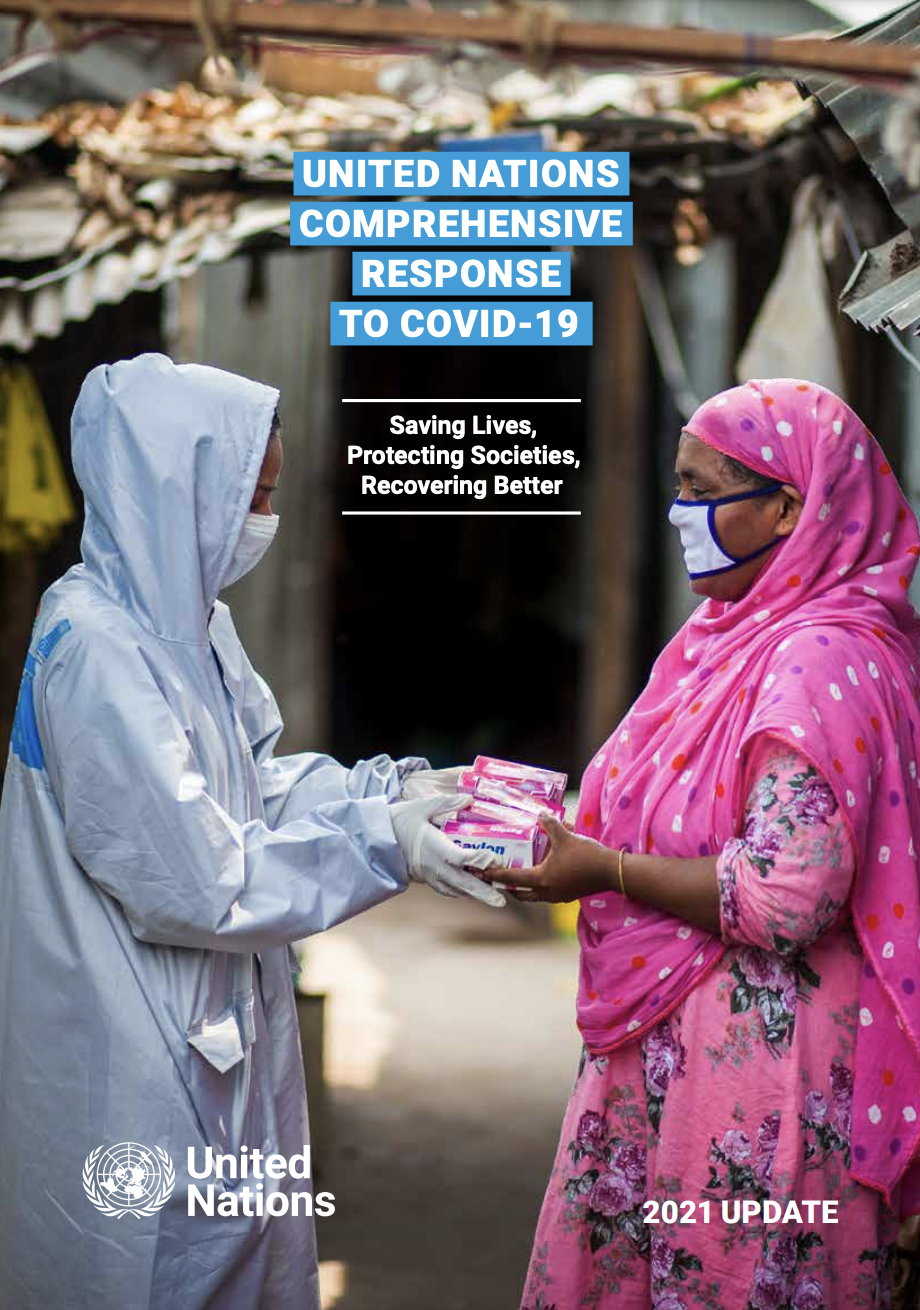United Nations Comprehensive Response to COVID-19: Saving Lives, Protecting Societies, Recovering Better
Description
In 2020, the world was hit hard by the COVID-19 pandemic, forcing adjustments in the way societies function and demanding unprecedented efforts to reboot economies. The impacts of the pandemic on the lives, livelihoods and
dignity of people everywhere are significant. Many countries now face major setbacks to progress toward the Sustainable Development Goals (SDGs).
The pandemic has underscored how humankind is inextricably connected, and revealed multifaceted inequalities—with some who have access to care, services and opportunities, and some who are left behind. National authorities and communities across the world have struggled to respond to the crisis and to secure a sustainable and resilient recovery, with unprecedented support from the entire United Nations system, as well as by donors and partners, and by the scientific community and the private sector. Although more than seven billion doses of COVID-19 vaccines have been administered worldwide, a global vaccine gap threatens progress as the virus mutates and becomes more transmissible, and possibly more deadly. We have not made sufficient progress in assuring fair and equal access to vaccines, especially for vulnerable populations living in low-income countries. As of 16 November 2021, 2.6 per cent of people in low-income countries were fully vaccinated against COVID-19, compared to 66 per cent of people in high-income countries. The global vaccination plan should reach everyone, everywhere. The World Health
Organization’s Strategy to Achieve Global COVID-19 Vaccination by mid-2022, launched in October 2021, is designed to get vaccines into the arms of 40 per cent of people in all countries by the end of the year, and 70 per cent by mid-2022.
Additional languages

DETAILS
Publication
Authors
Emergency
Scope
Language
Region
Keywords

